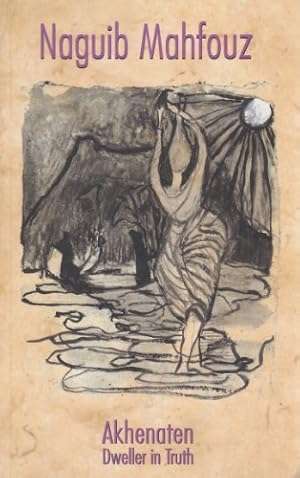
Akhenaten, Dweller in Truth by Naguib Mahfouz
Check my rate
| Main centres: | 1-3 business days |
| Regional areas: | 3-4 business days |
| Remote areas: | 3-5 business days |

| Main centres: | 1-3 business days |
| Regional areas: | 3-4 business days |
| Remote areas: | 3-5 business days |
Published by American University in Cairo Press, 2001, softcover, 172 pages, condition: new.
In this beguiling novel, originally published in 1985 and now appearing for the first time in the United States, Mahfouz tells with extraordinary insight the story of the "heretic pharaoh," or "sun king,"--and the first known monotheistic ruler--whose iconoclastic and controversial reign during the 18th Dynasty (1540-1307 B.C.) has uncanny resonance with modern sensibilities. Narrating the novel is a young man with a passion for the truth, who questions the pharaoh's contemporaries after his horrible death--including Akhenaten's closest friends, his most bitter enemies, and finally his enigmatic wife, Nefertiti--in an effort to discover what really happened in those strange, dark days at Akhenaten's court. As our narrator and each of the subjects he interviews contribute their version of Akhenaten, "the truth" becomes increasingly evanescent. Akhenaten encompasses all of the contradictions his subjects see in at once cruel and empathic, feminine and barbaric, mad and divinely inspired, his character, as Mahfouz imagines him, is eerily modern, and fascinatingly ethereal. An ambitious and exceptionally lucid and accessible book, Akhenaten is a work only Mahfouz could render so elegantly, so irresistibly.
Naguib Mahfouz was an Egyptian writer who won the 1988 Nobel Prize in Literature. In awarding the prize, the Swedish Academy described him as a writer "who, through works rich in nuance now clear-sightedly realistic, now evocatively ambiguous has formed an Arabian narrative art that applies to all mankind". Mahfouz is regarded as one of the first contemporary writers in Arabic literature, along with Taha Hussein, to explore themes of existentialism. He is the only Egyptian to win the Nobel Prize in Literature. He published 35 novels, over 350 short stories, 26 screenplays, hundreds of op-ed columns for Egyptian newspapers, and seven plays over a 70-year career, from the 1930s until 2004. All of his novels are set in Egypt, and always mention the concept of "the lane" as a microcosm of the world. His most famous works include The Cairo Trilogy and Children of Gebelawi. Many of Mahfouz's works have been adapted into Egyptian and international films; Making him one of the most widely adapted Arab authors. While Mahfouz's literature is classified as realist literature, existential themes appear in it.